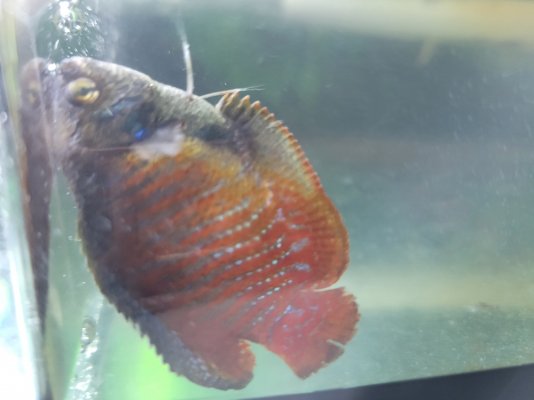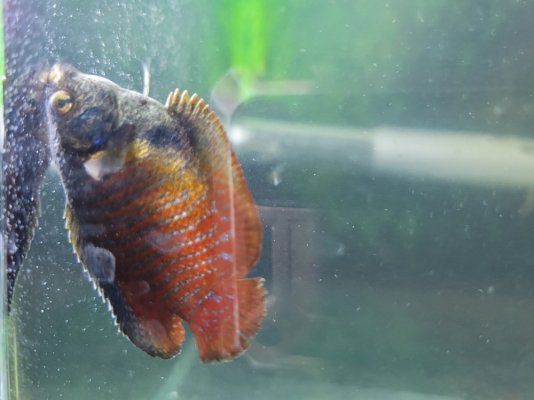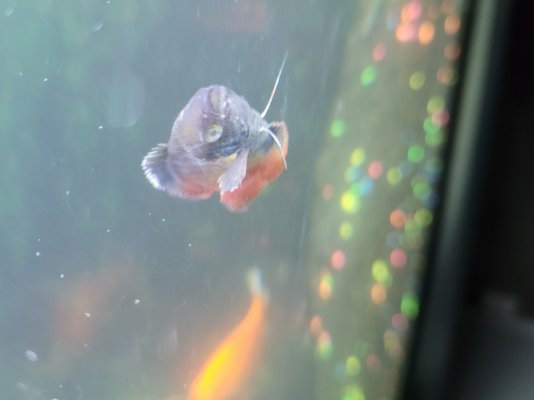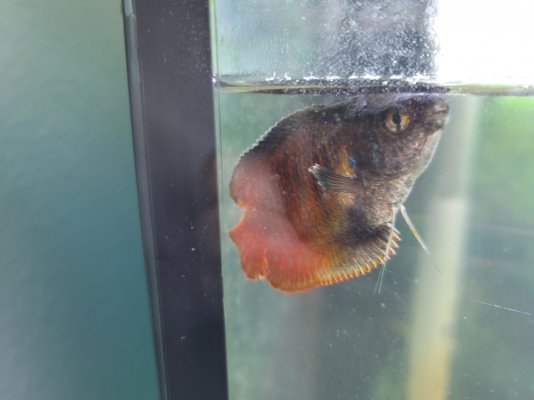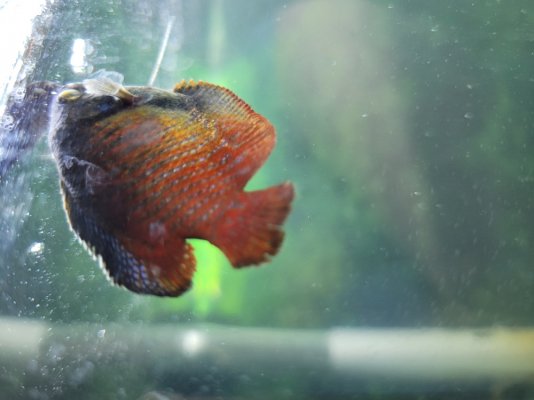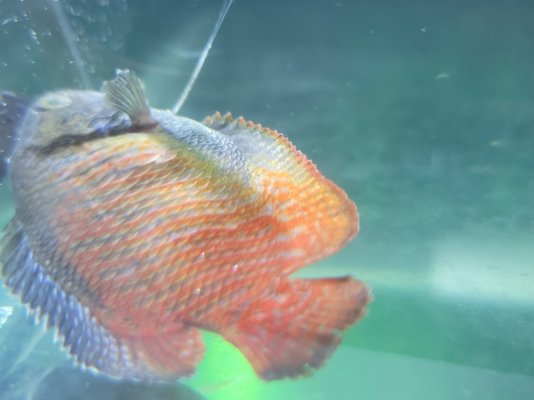I am new to the aquarium hobby and had a healthy 40 gallon freshwater tank for a while. I purchased a fish online and after about a week my tetras developed ich. Soon after, everyone was sick. Per my local fish store I treated with copper green which seemed to help everyone except for my gourami. She looked to be having issues with her swim bladder so I have started erythromycin. She is just getting worse. Her head is starting to discolor, her scales are raised, she won't eat, and she just sits and breathes at the top of the tank. This is my last hope before euthanizing so I'm hoping someone has an answer. I hate seeing her suffer.
Tank parameters:
Ph 7.0
Ammonia 0
Nitrite 0
Nitrate 15 ppm
Chlorine 0
Soft water
Temp 78
My carbon is removed and I am not doing water changes currently as still have one day left for the antibiotics. Normally I do weekly 20-25% changes while vacuuming the gravel. Other fish (that are still alive): serpae tetras × 3, goldfish, clown pleco x 2. Deceased fish: neon tetras x 5, telescope goldfish. I was just about to get a 60 or higher gallon tank when this happened..
Tank parameters:
Ph 7.0
Ammonia 0
Nitrite 0
Nitrate 15 ppm
Chlorine 0
Soft water
Temp 78
My carbon is removed and I am not doing water changes currently as still have one day left for the antibiotics. Normally I do weekly 20-25% changes while vacuuming the gravel. Other fish (that are still alive): serpae tetras × 3, goldfish, clown pleco x 2. Deceased fish: neon tetras x 5, telescope goldfish. I was just about to get a 60 or higher gallon tank when this happened..

